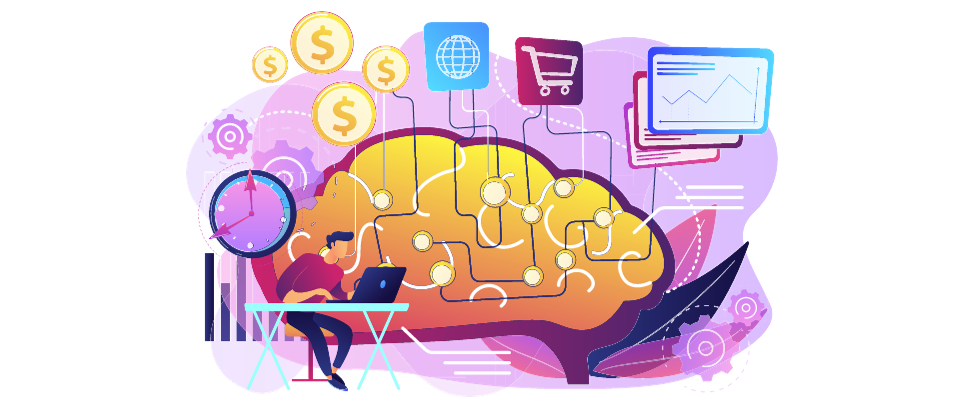Are you ready to take your deep-learning skills to the next level?
If so, you’re in luck because, in this blog, we’ll be discussing seven of the most powerful deep learning tools that you can use in 2023 to enhance your projects and accelerate your career in AI.
Deep learning has been making waves in the tech industry for years, and with good reason. It’s a branch of machine learning that has revolutionized the way we approach data analysis, natural language processing, image recognition, and more. And with the increasing demand for AI and machine learning professionals, it’s more important than ever to stay up-to-date with the latest tools and technologies.
From libraries to frameworks to platforms, these tools will help you streamline your deep learning workflows and take your projects to new heights.
As we move further into the era of artificial intelligence, deep learning has become an essential tool for businesses and researchers. With the abundance of deep learning tools available on the market, it can be overwhelming to choose the right one.
The Ultimate Deep Learning Toolbelt: 7 Must-Have Tools for 2023
In this blog, we will explore 7 deep-learning tools that are poised to make a significant impact in 2023. These tools have been chosen based on their features, popularity, and potential for growth.
So, let’s dive in and explore what they have to offer!
1. TensorFlow
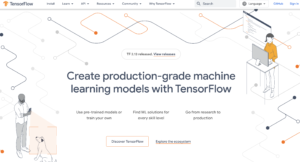
TensorFlow is an open-source platform that has gained immense popularity among deep learning enthusiasts. Developed by Google, it is designed to be flexible and scalable, making it ideal for large-scale machine-learning projects.
TensorFlow is known for its ability to run on multiple platforms, including CPUs, GPUs, and mobile devices. It also offers a user-friendly interface that simplifies the process of creating and training deep learning models.
2. PyTorch

PyTorch is another popular deep-learning tool that is gaining traction in the AI community. Developed by Facebook, PyTorch is known for its dynamic computation graph, which makes it easy to create and modify deep learning models.
It is designed to be user-friendly, with a simple interface that allows developers to experiment with different models and algorithms.
3. Keras
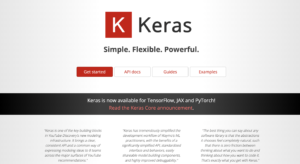
Keras is a high-level neural network API that is built on top of TensorFlow. Developed by Francois Chollet, Keras is designed to be user-friendly and intuitive, making it easy to build and train deep-learning models.
Keras offers a range of pre-built models and layers, making it ideal for developers who want to get started with deep learning quickly.
4. Caffe
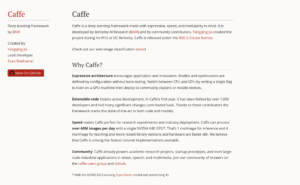
Caffe is a deep learning framework that was developed by Berkeley AI Research (BAIR). It is known for its speed and efficiency, making it ideal for large-scale machine-learning projects. Caffe offers a range of pre-trained models and tools, making it easy to get started with deep learning.
5. MXNet
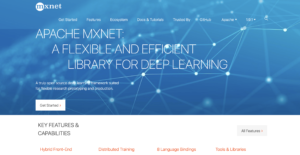
MXNet is an open-source deep learning framework that is known for its scalability and speed. Developed by Amazon, MXNet is designed to run on multiple platforms, including CPUs, GPUs, and mobile devices. It also offers a user-friendly interface that simplifies the process of creating and training deep learning models.
6. Theano
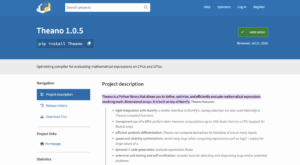
Theano is a deep learning library that is known for its speed and efficiency. Developed by the Montreal Institute for Learning Algorithms (MILA), Theano is designed to run on CPUs and GPUs. It offers a range of tools and pre-built models, making it ideal for researchers and developers who want to get started with deep learning.
7. Torch

Torch is an open-source deep-learning library that is known for its flexibility and ease of use. Developed by Ronan Collobert and Clement Farabet, Torch is designed to be user-friendly, making it easy to build and train deep-learning models.
It also offers a range of pre-built models and algorithms, making it ideal for developers who want to get started with deep learning quickly.
As technology continues to advance, we can expect to see more sophisticated deep-learning tools that can handle complex tasks and processes. However, it’s essential to keep in mind that the tools themselves are not the key to success. It’s the expertise of the users that drives innovation and progress in the field of deep learning.
By staying up-to-date with the latest trends and techniques, and continuously honing their skills, data scientists and engineers can make the most of the deep learning tools at their disposal, enabling them to build smarter and more powerful AI systems that can drive the future of our society.
Take charge of your future and make your mark in the world of data science. Join us at Accredian and start your transformation from insights to algorithms today!
Dive into our collection of Data Science resources for continuous learning. Don’t miss this opportunity! Join us today for an exhilarating journey toward a fulfilling career in Data Science! Let’s make your data-driven dreams a reality!
We hope you enjoyed reading this blog and found the insights valuable. If you have any questions or comments, feel free to reach out to us.

